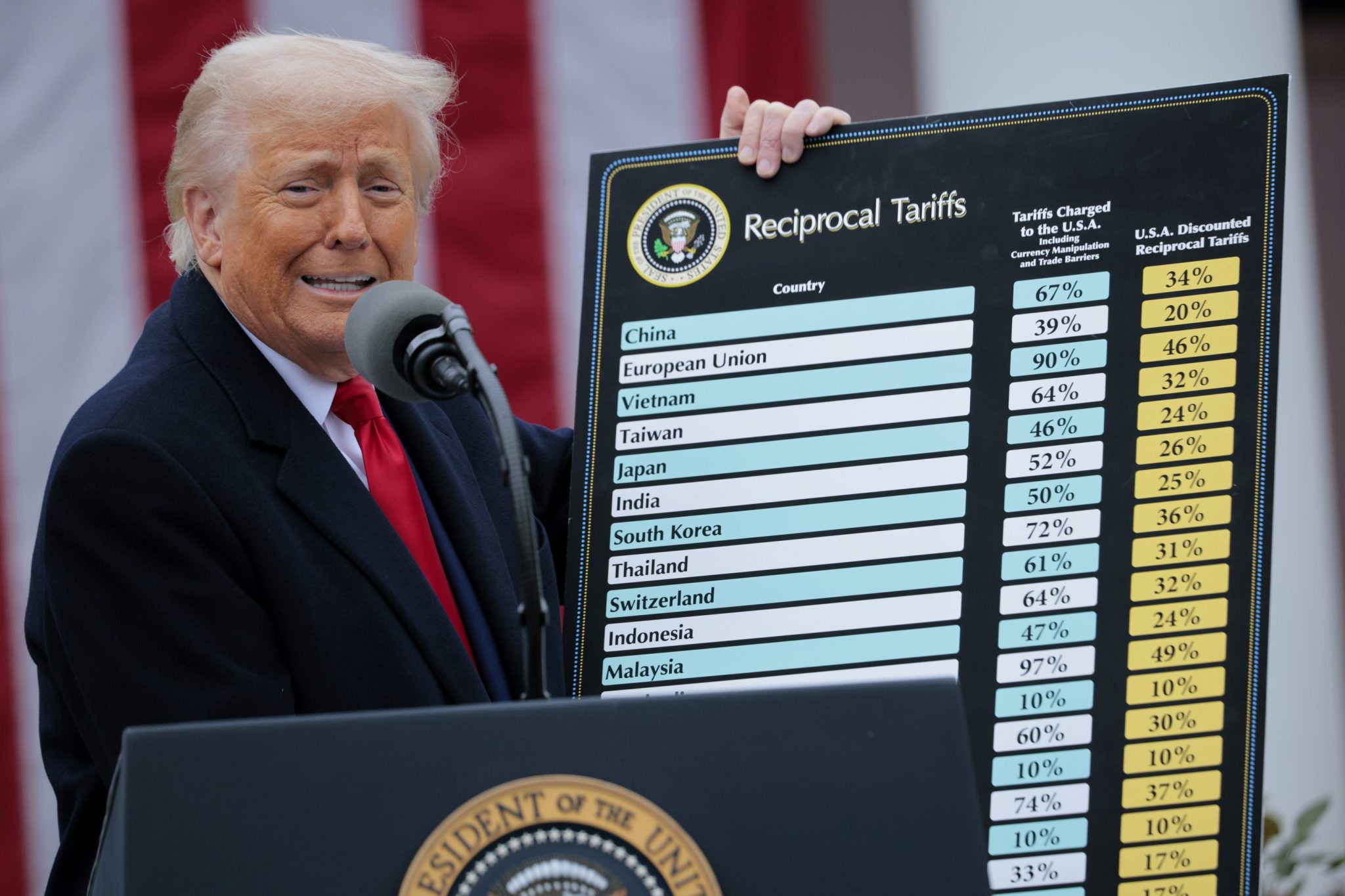Bond vigilantes killed Trump’s reciprocal tariffs—and they’re weighing in on GOP’s push for tax cuts
The bill arriving in Congress could add an estimated $3.8 trillion to the federal deficit through 2034.

- Long-term yields spiked earlier this week as traders scaled back their bets on rate cuts by the Federal Reserve and reacted to the new tax bill advanced by House Republicans. Bond vigilantes, who can bring fiscally irresponsible politicians to heel by unloading a country’s debt, may rear their head if Congress doesn’t show any appetite to bring the federal deficit under control.
Chaos in the bond market may have forced President Donald Trump to back off the reciprocal tariffs he initially unveiled on “Liberation Day” in early April. Another sell-off ensued this week as House Republicans moved forward on a “big, beautiful” bill of tax cuts, which would likely exacerbate an already ballooning deficit.
As the bill moves through Congress, however, so-called “bond vigilantes”—or investors who encourage fiscal discipline by unloading a country’s debt—could have a say. The yield on the benchmark 10-year Treasury, which rises as the price of the bond falls, closed above 4.5% for the first time since February on Wednesday.
The 30-year yield, meanwhile, almost touched the 5% mark, which it briefly hit the evening before Trump announced the 90-day pause on reciprocal tariffs last month. The president acknowledged he made the move after fixed-income investors had gotten “yippy.”
“So we are now reaching yield levels that previously seemed to trigger sensitivity from the U.S. administration,” Deutsche Bank strategists wrote in a note Thursday morning, “though the recent moves are much more orderly than they were in early April.”
Yields retreated markedly on Thursday, with the 10-year falling as far as nine basis points as inflation data came in cooler than expected and bond investors seized on a buying opportunity. Trump, of course, has been clear he wants to see long-term borrowing costs come down.
But yields primarily declined earlier this month because of recession fears, Rob Haworth, a senior investment strategist at U.S. Bank Wealth Management, told Fortune. Investors then reversed course and piled out of bonds after an agreement with China to pause tariffs buoyed markets, with investors scaling back their bets on rate cuts by the Federal Reserve.
Then, Haworth said, long-term yields also began reacting to tax bill developments.
“I think the bond market has some concern that this is not quite as deficit friendly as they’d like,” he said.
The Biden administration spent its way out the COVID-19 pandemic, but it never shut off the fiscal pump. According to the Congressional Budget Office, the federal deficit for the 2025 fiscal year is $1.9 trillion, or 6.2% of GDP, the deepest shortfall in the country’s history outside of a war or recession.
Now, Trump’s promised tax cuts could send that number soaring. As written, the bill advanced by the House Ways and Means Committee would increase deficits by an estimated $3.8 trillion through 2034, according to the Congressional Joint Committee on Taxation.
“As things [stand],” Deutsche Bank strategists wrote, “it looks improbable that the eventual package will deliver any meaningful reduction of the elevated U.S. fiscal deficit.”
Proponents of the bill argue lost revenue will be made up for by economic growth resulting from lower taxes and deregulation, but bond investors might not be convinced. After all, Haworth said, a boost to growth from tax cuts may fight to solely offset a slowdown due to tariffs.
The most expensive parts of the new bill come from extending and expanding provisions in the Tax Cuts and Jobs Act, which Trump signed into law in 2017. The Committee for a Responsible Federal Budget found the TCJA did not pay for itself, as its backers claimed, though it did stimulate economic growth.
“Once again, the experts are wrong, just as they were about the impact of Trump’s tariffs, which have yielded trillions in investments, record job growth, and no inflation,” White House Deputy Press Secretary Harrison Fields said in a statement to Fortune. “These experts should be embarrassed to share their ‘expertise,’ considering the egg still on their faces. MAGAnomics transcends conventional wisdom, and the President’s One Big Beautiful Bill will continue to prove the haters wrong.”
Who are bond vigilantes?
A bigger budget deficit means more government borrowing. That increases the supply of Treasury debt, which makes existing bonds less attractive and causes investors to drive up yields.
Thus, a major bond sell-off can bring fiscally irresponsible politicians to heel by forcing the government to borrow at higher rates, which pushes up its interest rate payments. In 1983, economist Ed Yardeni famously coined the term “bond vigilantes” to describe these investors who, he said, can fight against policies they deem inflationary or fiscally irresponsible.
“Perpetually running a deficit and raising the debt ceiling is probably an unsustainable way to run the government,” Miguel Laranjeiro, investment director for municipal debt at Aberdeen Investments, told Fortune.
One famous example of bond vigilante success came in the 1990s, when President Bill Clinton scaled back his economic agenda following a bond market riot and instead turned his focus to balancing the budget.
The makeup of the bond market has changed a lot since then, Haworth said. Trading desks at big banks no longer keep huge inventories of Treasuries, he said, due to rules instituted following the Global Financial Crisis. That stash has been somewhat replaced, he said, by hedge funds looking for trends and arbitrage opportunities or wealth managers seeking the best long-term options for clients.
“So to some extent, they exist,” Haworth said of bond vigilantes, “but their nature is very, very different.”
There’s recent precedent for such investors putting a kibosh on planned tax cuts. Even Nobel laureate Paul Krugman, a longtime skeptic of the bond vigilante concept, acknowledged the role of fixed-income traders in the fall of former U.K. prime minister Liz Truss in 2022.
Bond vigilantes revolted after Truss announced £45 billion, or $50 billion, in unfunded tax cuts, inciting a mini-financial crisis as interest rates skyrocketed and the pound plunged to historic lows against the dollar. Truss resigned after 49 days in office, the shortest stint at 10 Downing Street in the country’s history.
Trump’s position as president, of course, is much less vulnerable. The bond market, however, may be one of the few things he must answer to.
This story was originally featured on Fortune.com


















































![[Weekly funding roundup May 10-16] Large deals remain a no-show](https://images.yourstory.com/cs/2/220356402d6d11e9aa979329348d4c3e/Weekly-funding-1741961216560.jpg)








































































![Epic Games: Fortnite is offline for Apple devices worldwide after app store rejection [updated]](https://helios-i.mashable.com/imagery/articles/00T6DmFkLaAeJiMZlCJ7eUs/hero-image.fill.size_1200x675.v1747407583.jpg)











































.jpg)
















